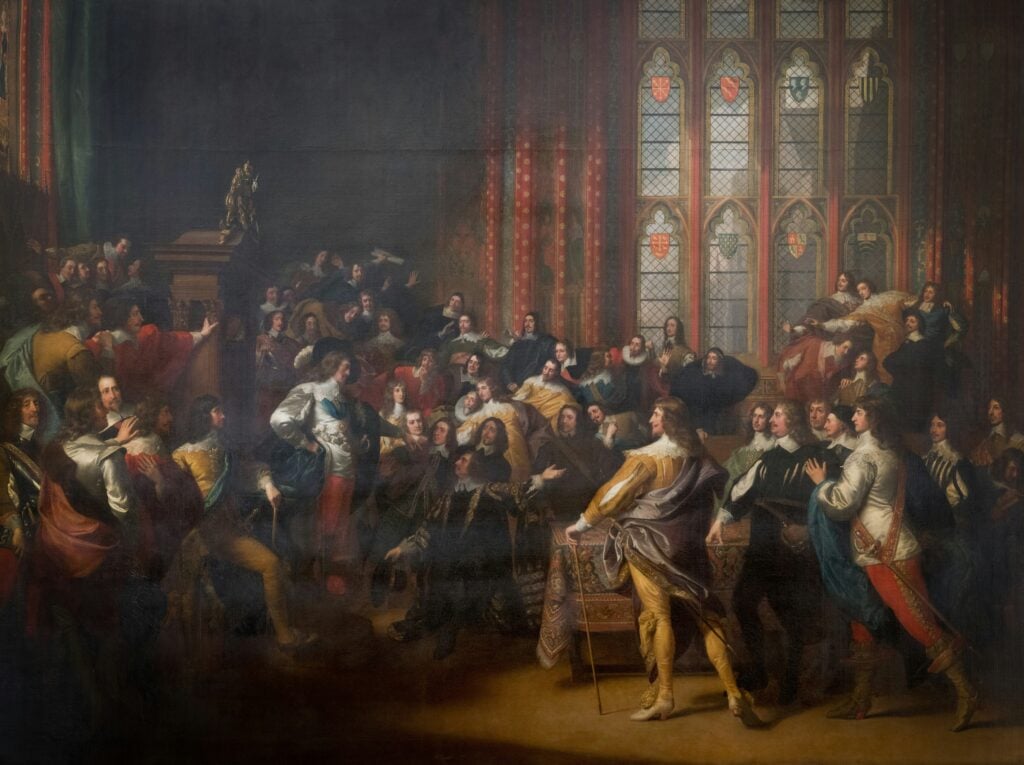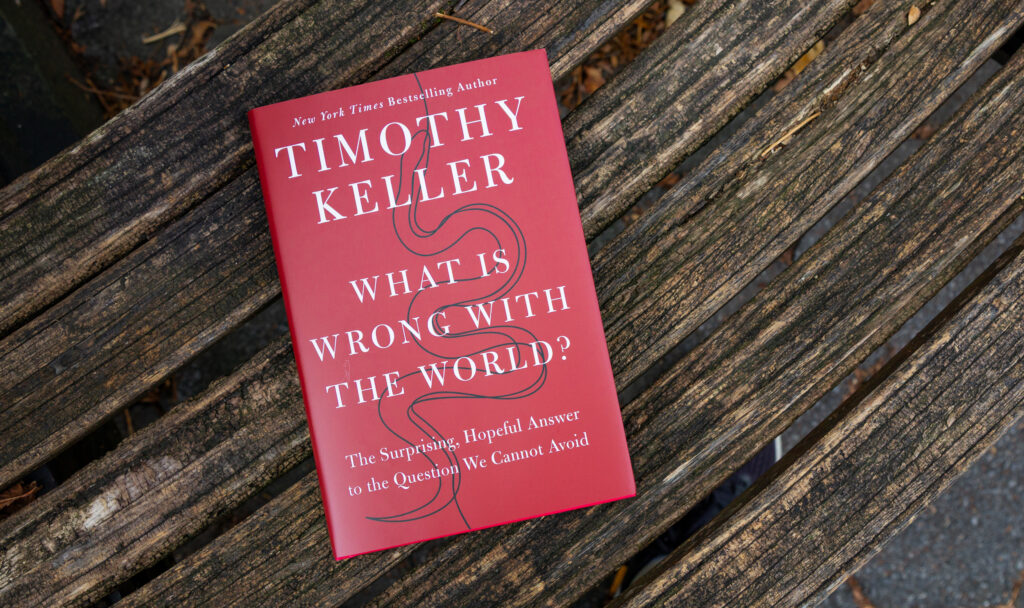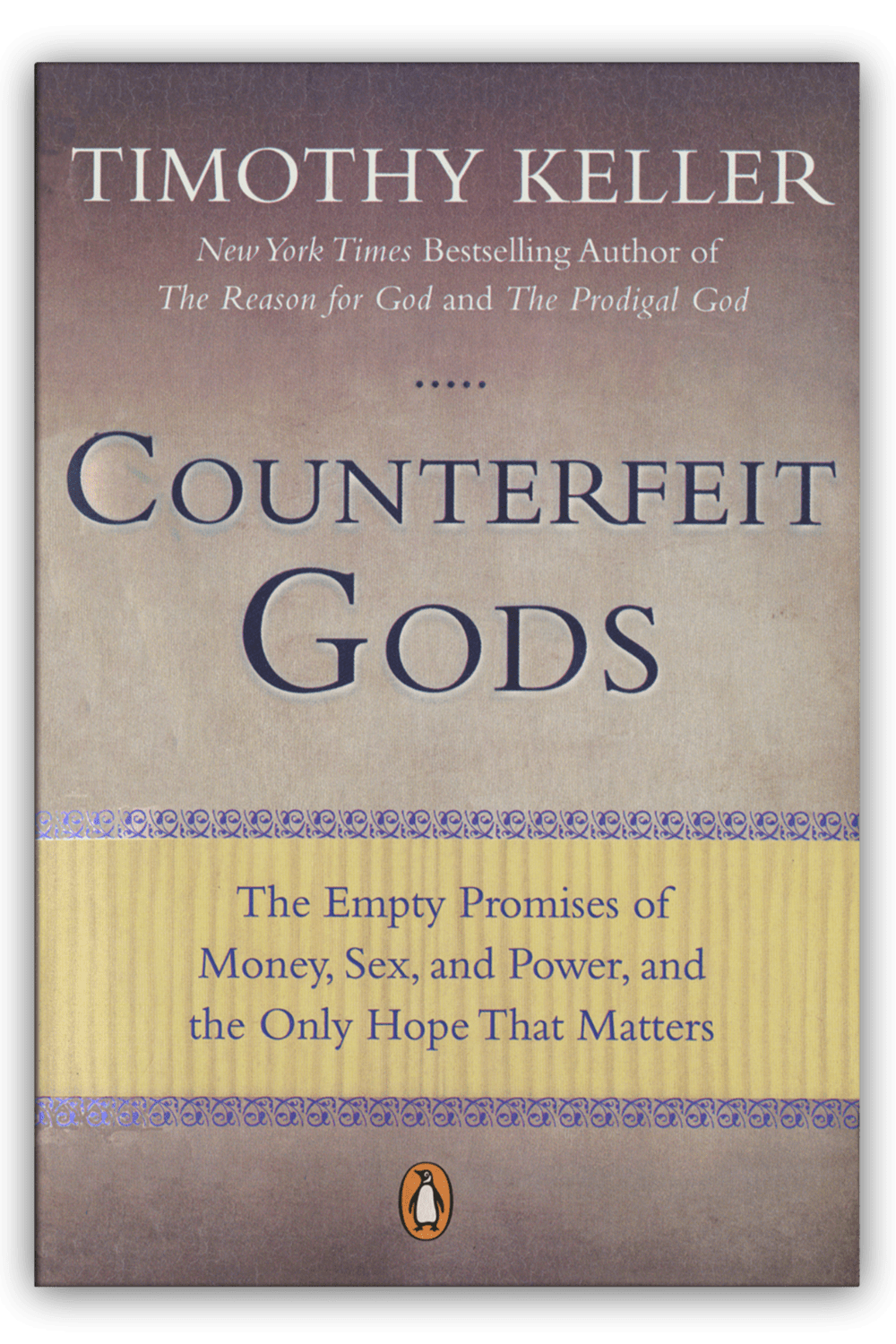I want to be the best parent I can be to my three children. But in looking at all the ways I want a do-over or could be better, if I get one thing right, I want it to be that they love Jesus and desire him to be king of their lives. It’s something I’ve talked about many times with each of them when they were facing challenges or big decisions. Because—let’s face it—we all want to be the king in our own lives. The poem “Invictus” by William Ernest Henley is famous for its final lines:
It matters not how strait the gate,
How charged with punishments the scroll,
I am the master of my fate,
I am the captain of my soul. [] [1] William Ernest Henley, “Invictus.” https://www.poetryfoundation.org/poems/51642/invictus.
We all want to be king
The challenge is that since the beginning of humanity in the garden of Eden, there has been one unchanged aspect of the human heart—deep down in our soul we all desire to be the king of our lives. We are unwavering in our determination to unseat the rightful and only true king, Jesus Christ. It is not always obvious to us, and we need to constantly look at God’s Word to combat our tendencies to make ourselves king.
An old bumper sticker said: “Jesus is my co-pilot”
Years ago you could find the phrase “Jesus [or God] is my co-pilot” on mugs, t-shirts and bumper stickers quite frequently. It was a trend that I guess was supposed to show some sort of connection to God and to imply that people allowed God to help lead their life. To that catchphrase I say, “No, he’s NOT!” Let’s be honest, if we are using metaphors for how we relate to the creator of the universe, he’s not the co-pilot. When you think for a minute about the ways we all make mistakes daily, we don’t even have any business being in the cockpit.
The irony is that we are insufficient to rule our lives, as disordered and self-destroyed as we are, but we still think we are best suited to run things. As another poet, Shel Silverstein, wrote in his poem “God’s Wheel,”
GOD says to me with a kind
of smile, “Hey how would you like
to be God awhile And steer the world?”
“Okay,” says I, “I’ll give it a try.Where do I set?
How much do I get?
What time is lunch?
When can I quit?”“Gimme back that wheel,” says GOD.
“I don’t think you’re quite ready YET.” [] [2] Shel Silverstein, “God’s Wheel.” https://hellopoetry.com/poem/599/gods-wheel.
We need a true king who rules justly, self-sacrificially, lovingly and mercifully. We, on the other hand, when we make ourselves king, are greedy, merciless, self-serving, blame-shifting, self-justifying, and lacking generosity and empathy—not kingly at all. When we’re honest about our true nature, we know we are not king material. And the discovery that comes with giving Christ his rightful place as king of our lives is that this is what we were designed for and where our true identity rests—as children of our Heavenly Father, who should rightfully occupy the throne of our heart as our glorious, gracious and loving king.
When we’re honest about our true nature, we know we are not king material.
When we see God as defined in the scripture, we can begin to see that although we deserve no place with him, he graciously invites us into his amazing kingdom with love and kindness. A better metaphor for how we might view our relationship with God is in the parable of the prodigal son. We ask for what we don’t deserve and then waste the riches given to us on foolish choices, lavishing ourselves in unjustified self-indulgent living. Then, when our aspirations to be the king of our lives crash, and we crawl back to him broken and feeling as though we are without hope, our king runs to greet us with open arms and prepares a feast!
We can know our king through his Word
Psalm 1 begins,

“Blessed is the man who walks not in the counsel of the wicked,
nor stands in the way of sinners, nor sits in the seat of scoffers;
But his delight is in the law of the Lord, and on his law he
meditates day and night.”—Psalm 1:1-2, ESV
The use of “Lord” and the juxtaposition of “the wicked, the sinners and the scoffers” makes a clear delineation between those who have made themselves king and those who have a Lord and are delighting in his KINGship.
All of scripture tells us that wisdom is to delight in the Word and meditate on it all the time. When we do that, we see how our Lord (and king) will make everything the way it should be in our lives—and we will have an unshakeable identity and strength that will carry us through every day with hope, love and assurance.
Submission isn’t a bad word
The key is that we must submit to our rightful king, rather than wanting to dethrone him and be one ourselves. In the first half of Romans 6, Paul talks about being dead to sin or our “old self” with its sinful nature.
“For we know that our old self was crucified with him so that the body ruled by sin might be done away with, that we should no longer be slaves to sin—because anyone who has died has been set free from sin.”
—Romans 6:6-7, NIV
He’s pointing out that every day I need to recalibrate to the fact that my old self and its desire to be king is no longer in charge—it’s “dead,” and my new redeemed self as a child of the king begins each day as the anchor of my identity.
We need to humble ourselves and joyfully submit to our king. All through scripture we see examples of how God relates to the proud vs. the humble, like in James 4:
“‘God opposes the proud but shows favor to the humble.’ Submit yourselves, then, to God. Resist the devil, and he will flee from you. Come near to God and he will come near to you. […] Humble yourselves before the Lord, and he will lift you up.”
—James 4:6-10
As Christians are sanctified, there is a clear progression where we grow in our service as faithful followers of Christ, submitting to the rightful kingship of Christ in our lives more and more.
But the essence of a faithful subject under a king is one that runs counter to our inclinations—Humility, Submission, Loyalty, Service, Identity. Tim Keller often quoted Soren Kierkegaard’s definition of sin: that sin is anything where we place our identity in something other than God.
The ultimate problem the world has always had is the overabundance of undeserving self-appointed “kings.” Throughout history humans refuse to acknowledge the one and only true king, and instead of experiencing his just, gracious rule, they trade it for war, strife, greed, malice, bigotry, hate and the like.
In Matthew 23 Jesus gives example after example as he goes directly after the Pharisees, recounting how they have been hypocrites and worse. At the end of the chapter, he uses the metaphor of a hen and how she will gather her chicks under her wings for protection to describe how Jerusalem (like young children) have responded to him. It’s a demonstration of how we are all like little children who need a place that is safe under the authority and love of a superior. And in the metaphor, Jesus puts himself as the parent and us as the children. He offers his protection, his safety, his love; and we reject him outright. The outcome he describes—when we reject him and live as our own rulers—is one of desolation.
“Jerusalem, Jerusalem, you who kill the prophets and stone those sent to you, how often I have longed to gather your children together, as a hen gathers her chicks under her wings, and you were not willing. Look, your house is left to you desolate.”
—Matthew 23:37-38, NIV
The things earthly kings produce have made every person who ever thought about it ask, “What’s wrong with the world?” We repeatedly fail (miserably) when we make ourselves king.
The beauty of our king
But imagine the converse of the example Christ gave: choosing to come under his wings and let him be king. In that case, we can have everything we need. We don’t have to fear what may happen to us—because we are under the care and love of the one true king. When we give our lives to Jesus—and as Paul taught, die to our old self—a whole new world opens up to us that has a trajectory toward how our creator (and king) designed us to be. He was willing to give up his throne to save us. Why then would we not give up our desire to be king of our lives in order to have an eternal, loving relationship with our rightful king?
We can have everything we need… because we are under the care and love of the one true king.
There’s a magnificent old hymn that captures some of the majesty and beauty of Christ as King. If you grew up in church you may be familiar with it. These words bring to life some of the beauty and awe of his kingliness that help us see why he must sit on the throne of our hearts.
Crown Him with Many Crowns
Crown Him with many crowns,
The Lamb upon His throne;
Hark! how the heav’nly anthem drowns
All music but its own!
Awake, my soul, and sing
Of Him who died for me,
And hail Him as thy matchless King
Through all eternity.
Crown Him the Lord of Love:
Behold His hands and side;
Rich wounds yet visible above
In beauty glorified:
No angel in the sky
Can fully bear that sight,
But downward bends his burning eye
At mysteries so bright.
Crown Him the Lord of peace,
Whose power a scepter sways
From pole to pole, that wars may cease,
And all be prayer and praise.
His reign shall know no end,
And round His pierced feet
Fair flowers of glory now extend
Their fragrance ever sweet.
Crown Him the Lord of years,
The Potentate of time.
Creator of the rolling spheres,
Ineffably sublime.
All hail, Redeemer, hail!
For Thou hast died for me;
Thy praise shall never, never fail
Throughout eternity.
[]
[3] Matthew Bridges and Godfrey Thring, “Crown Him with Many Crowns.”




